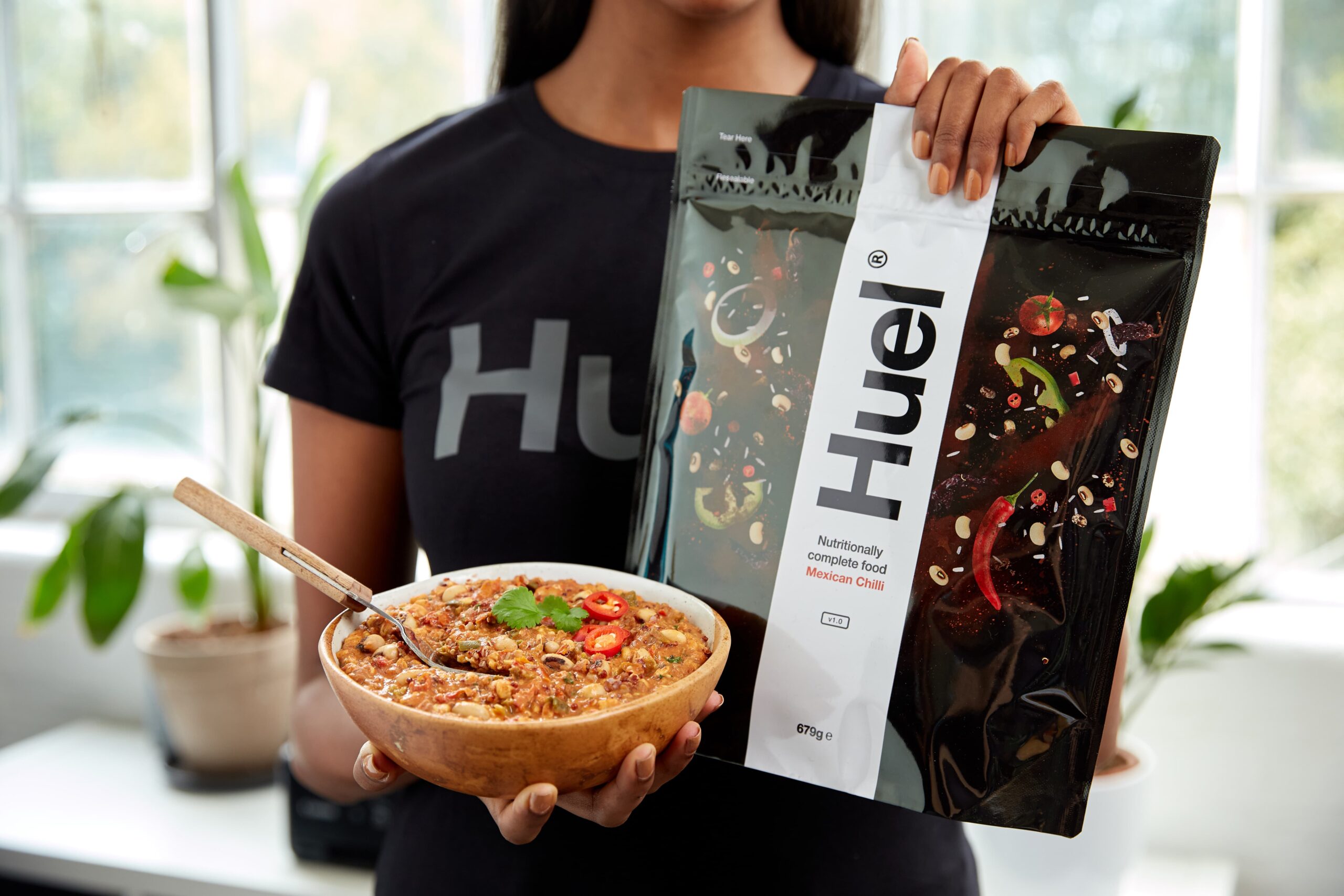Food brand Huel, today revealed the carbon emissions of its powdered meals are 0.6kg (400kcal) and committed to lower these even further by 2021.
Already globally popular in more than 100 countries for their simple solution to complete nutrition, Huel’s newly revealed eco-credentials adds weight to the claim that the brand is the ‘future of food’.
The news comes as Huel publishes their first ‘Sustainable Nutrition Report’, outlining crucial changes needed to feed future generations a nutritious diet within the sustainable limits of our planet’s resources.
The report is an evolution of traditional sustainability reporting in the food industry where sustainability and nutrition have been looked at in isolation.
Research shows that a quarter (26 percent) of all global carbon emissions come from creating the food we eat and yet at the same time, poor diets cause roughly 11 million deaths a year. Using a scoring system which for the first time combines both elements of nutrition and carbon footprint, Huel challenges everyday food choices on the nourishment they actually provide and the detrimental consequences they also have on the planet.
For example, one 400kcal serving of Huel Vanilla Powder produces 0.6kg CO2e, and at the same time provides a balance of protein, carbs and fat, and the optimum level of all 26 essential vitamins and minerals.
By contrast, a typical chicken and bacon sandwich (400kcal)* creates 65% more greenhouse gas emissions (0.99kg CO2e) than an equivalent serving of Huel (0.6kg CO2e) and nutritionally comes up worse too – Huel contains 7% more protein, 85% more fibre and 30% less saturated fat.
Astonishingly, a cheeseburger (400kcal)* contains 510% more greenhouse gas emissions (3.66kg CO2e) than an equivalent serving of Huel (0.6kg CO2e), which by comparison also has 32% more protein, 92% less saturated fat and 90% less sugar.
Real and tangible change is needed by people worldwide if we are to improve our own health and that of the planet too. The challenge is that, unlike compulsory nutritional labelling, there is no clear advice on how to identify carbon emissions from our food choices.
To make it simpler for consumers to make sustainable and nutritious choices, Huel has begun to make carbon emissions of its products available on the website and pledged to put carbon emissions on packaging by the end of 2021. The hope is that the report propels the food industry to continue to reduce its environmental impact and inspires more transparent ways to share this information with consumers.
Commenting on the launch of the report, Huel CEO James McMaster said, “The way we eat is killing us and destroying the planet, we need to make changes, and fast. Changing what we eat is the simplest and largest impact we can have on both the planet and our bodies.
But the food industry needs to make it simple for consumers to make those decisions, which is why we are urging all brands to include the carbon emissions associated with their products, on all packaging within the next two years.”
Huel’s ‘Sustainable Nutrition Report’ was designed to provide a summary of the brand’s views on the future of food as well as an assessment of its performance on its sustainability mission.
Despite Huel Vanilla Powder currently proving a significantly low carbon footprint in comparison to many everyday food options, the company believes that it can be better, vowing to reduce the carbon footprint in its powdered product 10% by the end of 2021 and to continue to reduce it further in following years.
